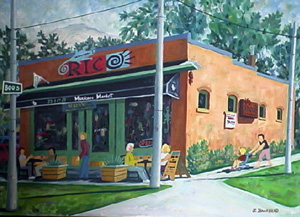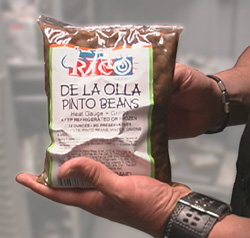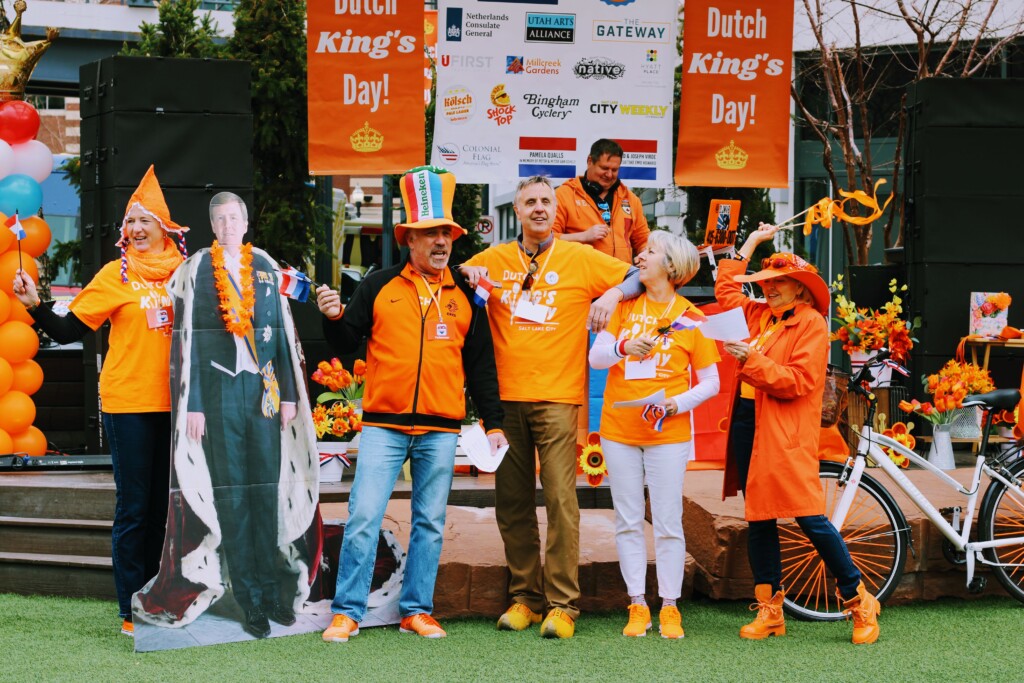How Jorge Fierro emigrated illegally to the United States, then overcame all odds to realize his dream of building a successful business.
Jorge Fierro came alone, illegally to the United States with the dream to start his own business. Residents might consider this dream laughable, especially coming from a non-English speaking Mexican kid without any college education. But Jorge wasn’t going to let a couple of small obstacles stop him from realizing the American Dream. Jorge says that it would have been impossible for him to migrate to the United States legally, so he did the only thing he could do– he easily crossed the border in Chiwawa.
After crossing the border, Jorge traveled to Wyoming where there we no opportunities for ESL classes. So he left Wyoming and headed to Utah because he heard that in Utah he could learn English and find a job.

Prior to starting Rico, Jorge worked in a large corporate tortilla factory. One momentous Saturday, he was given the opportunity to represent the company at Salt Lake City’s Downtown Farmers Market. It was this first introduction to the Farmers Market that demonstrated to Jorge a means for distributing and selling his beans with very little start-up cost.
Jorge’s earliest obstacle was how to start from almost nothing–by this time he had gained permanent resident status through marriage. (Jorge wasn’t certain he wanted to share with me the fact that he came to the United States illegally, but decided to be forthright to communicate the message that there are many successful people who migrated to the United States illegally.)
Jorge believes that the U.S. borders need to be protected and safe, and all illegal immigrants who commit crime should be deported. However, he believes that it is not economically possible to deport all illegal immigrants. Instead, Jorge supports the idea that the Federal Government provide a legal means for citizenship rather than just permitting illegal immigrants to live in the shadows.
Today, Jorge is a leader in the Utah Hispanic community. When I arrived for my interview with Jorge, he was catering a delicious lunch in his Rico warehouse facilities for the Utah Hispanic Chamber of Commerce. The spread included a variety of taco fillings, fresh vegetables, and salsas. Jorge offered me lunch, and I tasted my first taco made with beef tongue, which was surprisingly delicious. Jorge said Americans are slowly warming up to the popular foods of Mexico.

Jorge agreed to take me on a tour of his facility, a 14,000 square-foot leased warehouse space on 500 West that contains an USDA-approved production kitchen, numerous walk-in freezers and refrigerators, and a complete catering kitchen and staging area.
One area is basically a kitchen inside of a giant refrigerator where pallets of raw vegetables are loaded right off a truck and stacked daily for processing. Two workers quickly roll burritos by hand that will end up in his giant freezers. We continued to the next area. “I gotta show you my babies,” Jorge said with a smile. “This is how I started,” he said as he proudly displayed a package of his fully cooked beans with his signature lizard and sun Rico label.
In 1997, Jorge began producing and selling his own beans on Saturdays at the Downtown Farmers Market. However, it wasn’t until a few months later when he obtained a $10,000 Utah Micro Enterprise Loan that he was able to devote his efforts full-time to his bean business. Thanks to this loan, Jorge was able to share a lease for a small building, buy some equipment, and to meet Utah Department of Agriculture’s requirements to get his bean distribution underway. This initial 10K would be the only loan Jorge would take for the next seven years. With this money he opened his small market on 800 South 500 East in 1998. It wasn’t until seven years after beginning that Jorge was able to get out of the kitchen and “look for bigger loans and leases”

We then moved through Jorge’s new café and into his business offices. (Café by Rico, will open Friday, September 19, at this 545 West 700 South location.) Jorge’s office is decorated with Mexican flair. There are towering cacti, sculptures and artwork, photos of Jorge’s daughters, and a painting of his original market–all proudly displayed.
Jorge believes that anyone can have a great idea for a business, but without community support, ideas are worthless. Jorge says his rags-to-riches story would not have been possible anywhere but the United States, although he downplays his success explaining that all profits go back into the business. Jorge’s Rico has recently attracted some big investors offering to buy it. However, Jorge doesn’t believe selling out would be fair to the community, who he believes his business actually belongs to. Jorge wants to keep his business small (by definition, under 500 employees), however, he intends to expand into the Seattle and Portland markets within the next few years. When Rico does go national, Jorge said he says he has no plans to move away from Utah.Rico’s stand at the Downtown Farmers Market has been in operation for 10 years.

Jorge’s long-term vision for Rico is that it serves as an example for what anyone can do who has a great idea and a great product. Jorge sits on five boards related to financing and funding small business enterprises, including Utah Micro Enterprise Loan Fund, Hispanic Chamber of Commerce, Local First, Wells Fargo Latino Board, and the Salt Lake City Business Advisory Board.
Coming up on November 1, Jorge will host Rico’s annual Day of the Dead Celebration at his warehouse facility, serving free food and beverages to anyone who wishes to attend. The only requirement is attendees donate 10 cans of food or $10 to benefit the Utah Food Bank.






